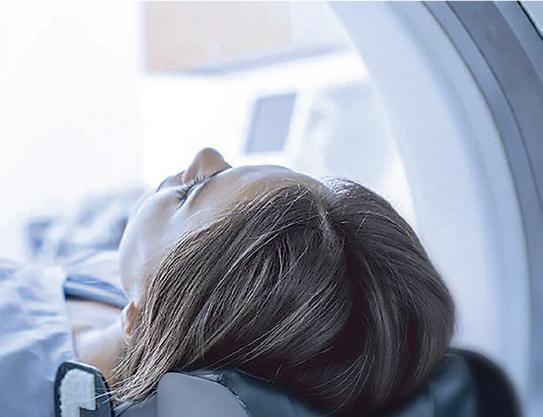
5 minute read
Multiplying Biomedical Capacity In Developing Nations
Making free essential surgical care accessible to people in low income countries is a bold undertaking which has just been made even more complex by the surgical backlog created by COVID-19.
Training and mentoring of local biomedical technicians is a priority for Mercy Ships during every 10-month field service in subSaharian Africa
Committed to doing more to meet the escalating need, not-for-profit Mercy Ships prepares to launch a second hospital ship in 2021, doubling the capacity to partner with low income countries. Biomedical technicians play an important role in the charity’s strategy to help develop more robust healthcare infrastructures, to see increased healthcare services provided and to strengthen existing medical capacity in sub-Saharan Africa.
With 40 percent of the world’s population living within 100 km of the coast, it makes sense for Mercy Ships to use ocean-going vessels as transportable heath care platforms for their work. Volunteer crew members provide free surgical services to a country for 10 months at a time, simultaneously offering mentoring and training programs for local healthcare professionals. Though demographically and vocationally diverse, the professionals who join Mercy Ships have a single
The full time health engineers are essential to the efficiency of the hospital ship, and they take every opportunity to share their expertise with local colleagues.
determination to make a lasting, sustainable impact in the populations they serve.

MULTIPLICATION OF BIOMEDICAL TRAINING IN AFRICA
When the existing flagship Africa Mercy docked in Emmanuel Essah’s home country of Benin, West Africa in 2009, he joined the crew as a translator. In due course he met one of the Mercy Ships health engineers, and asked ‘What does a biomedical engineer do?’ The crew member explained his responsibilities; the repair, calibration, maintenance and installation of the medical equipment onboard. Essah says, ‘By the time he finished explaining, I knew that biomedical engineering was something I wanted to pursue.’
Several years later, Essah still volunteers with Mercy Ships. As the vessel’s biomedical manager, he is also involved with training and upskilling other African health care engineers in each nation Mercy Ships serves.
Essah is about to undertake an inspiring new project; managing the 2021 biomeds outfitting in the hospital of the new Mercy Ship, Global Mercy. He keenly anticipates working alongside healthcare engineers from Australia and around the globe, colleagues who are passionate to make a real difference with their skills and training in a short term project. ‘It is a unique and exciting opportunity to be part of the team that will set up the medical equipment on the new ship. Being a biomedical engineer with Mercy Ships will challenge you,’ he states.
A NEW SHIP – A NEW HOPE
There has never been a more urgent time for Mercy Ships to double their services. This year’s deployment of the newest hospital ship, Global Mercy, will more than double the surgical care and medical training Mercy Ships can provide for people who live in low-income countries in Africa.
The Global Mercy will be crewed by 600 international volunteers in medical, maritime and operational roles. The 174-metre, 37,000-tonne vessel has two hospital decks and includes six operating theatres, six wards, isolation, auxiliary services – and a patient ward sponsored by private donations from Australia.
In addition to providing six surgical specialties onboard, the medical capacity build teams will serve alongside their local colleagues, multiplying the impact
At 32,000 tonnes, the Global Mercy is the world’s largest civilian hospital ship
Africa Mercy senior healthcare engineer cleaning a microscope in the operating theatre
of mentoring programmes. To enhance this capability the Global Mercy will be outfitted with state-of-the-art training spaces featuring a simulation lab with virtual and augmented reality, mannequins and other surgical training tools. Significantly, a simulated post-op care space will allow trainers to reproduce local operating conditions and limitations in order to teach best practices in low-resource environments.

VOLUNTEER BIOMED OPPORTUNITIES

Healthcare engineers from Australia and around the world are applying now to volunteer aboard the Global Mercy to spend from two weeks to a couple of months outfitting the ship’s hospital. Biomedical projects on location in port in Antwerp, Belgium in 2021 include commissioning the range of patient-connected equipment used in a typical Australian hospital; high and low acuity wards, the ICU and ICU simulation/ training suite, the laboratory, operating theatres, decontamination and sterilisation (CSSD/CPD), dental clinic, ophthalmic examination areas and more.
With the installation complete, commissioning and acceptance testing of the CT, digital X-ray, and ultrasound imaging systems will be undertaken. They will be tag-teamed by engineers specialising in respiratory maintenance engineering or with a solid general electronics background.
We know that’s a big ask especially in times like these, when uncertainties abound, health and economic challenges are constant and the thought of overseas travel seems impossible – but we know you! Your hearts are big so we know you’ll give it some thought.
The journey to serve with Mercy Ships takes time and serious consideration which is why, if you are interested in exploring what’s involved, you can find more information about volunteer opportunities on the Global Mercy and the Africa Mercy at mercyships.org.au/bio-med
NOTE: The Africa Mercy is preparing to return to Senegal in 2021 after the field service was paused in March 2020 due to COVID-19. The vessel is currently undergoing maintaience and systems upgrades in the Canary Islands.
The Global Mercy announcement includes artist impressions of the on board hospital and an inside look at the ship build https://youtu.be/sEkYtddOXkM
















